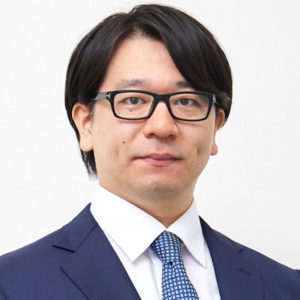 While working in industry in Japan, Yuta Hirose realised that one of the reasons why so many technology entrepreneurs fail to realise the full potential of their new product developments is that they place little importance on strategic thinking. This has led Yuta to design a strategic roadmapping tool for emerging technology ventures within his PhD funded by the RADMA Doctoral Studies Programme.
While working in industry in Japan, Yuta Hirose realised that one of the reasons why so many technology entrepreneurs fail to realise the full potential of their new product developments is that they place little importance on strategic thinking. This has led Yuta to design a strategic roadmapping tool for emerging technology ventures within his PhD funded by the RADMA Doctoral Studies Programme.
After completing a PhD in Engineering from the University of Cambridge, Yuta Hirose joined the University of Cambridge’s consultancy arm, IfM Education and Consultancy Services Limited (IfM ECS), as an Industrial Fellow.
Prior to this, he worked in business and strategy development support at a Japanese trading house and as a consultant at the United Nations Industrial Development Organization (UNIDO). He also has a BEng in Chemical Engineering, a BCom in Finance from the University of Melbourne, Australia, and a MSc in Sustainability Science from the University of Tokyo, Japan.
We asked him about his PhD and what had inspired him to pursue this subject.
Why did you choose this topic?
It was during my industry experience, that I became aware that many technology entrepreneurs and managers of client companies tend to focus only on developing products or services (or technologies) while they place relatively little emphasis on pursuing strategic thinking. By this I mean understanding and managing associated uncertainties in their ventures and projects, and aligning developments with relevant supply-push and demand-pull dynamics.
Most of them ended up dissatisfied as they were not able to create and capture value as they had hoped.
As part of early investigations, I explored Roadmapping, a systems-oriented visual approach to strategy and innovation, as a potentially appropriate method to support strategic thinking of technology entrepreneurs and managers, depicting with the time dimension and with systems-oriented thinking in the context of innovation and technology management.
Roadmapping is the subject of ongoing academic research, including some consideration of the application of roadmapping to technology ventures, for both prospective planning and retrospective learning purposes. However, I believe that in order to more appropriately and effectively apply the roadmapping approach to support technology ventures, the theoretical foundations need to be considered and developed to customise roadmapping for the specific case of technology ventures. This provided a starting point and motivation for conducting this research.
What is your PhD topic?
My PhD focused on characterising the emergence of technology ventures in the context of strategy and innovation in the technological fields of engineering, ICT and advanced materials. I adapted roadmapping principles to develop a retrospective visual mapping approach to understand how technological and market uncertainties are coped with while creating and capturing value at the time of emergence. I conducted 32 case studies and a focus group in the United Kingdom, The Netherlands, Japan, Australia and the United States. Based on the research outputs, I designed a strategic roadmapping tool and process to support emerging technology ventures in practice, encouraging tool testing and development as part of future work recommendations.
What are the conclusions from your PhD?
Overall, my PhD research demonstrates that characterising technology venture emergence, by applying roadmapping principles, provides significant implications for both researchers and practitioners of strategy and innovation. Success or failure of emerging technology ventures, in terms of value creation and capture, is not only directly related to products or services, but more broadly to the innovation systems in which the technology ventures operate.
My PhD research showed that applying roadmapping is an appropriate method to characterise and improve emerging technology venturing practices, supporting value creation and capture.
What is your plan after your PhD?
I am now an Industrial Fellow at the University of Cambridge’s consultancy arm, called the IfM Education and Consultancy Services Limited (IfM ECS). I am mainly based in Tokyo, Japan, helping small, medium and large organisations benefit from IfM research outputs in the Asia-Pacific region, with a particular focus on strategic roadmapping, innovation and technology management, and policy research relating to science, technology and innovation.
For further information regarding my PhD thesis and my activities as Industrial Fellow, please contact me at yh359(@)cam.ac.uk.

